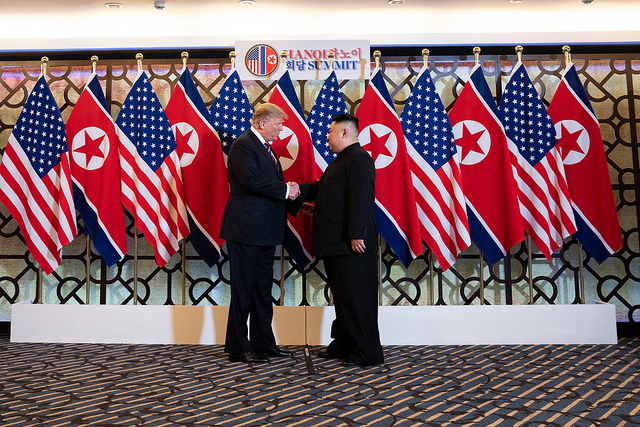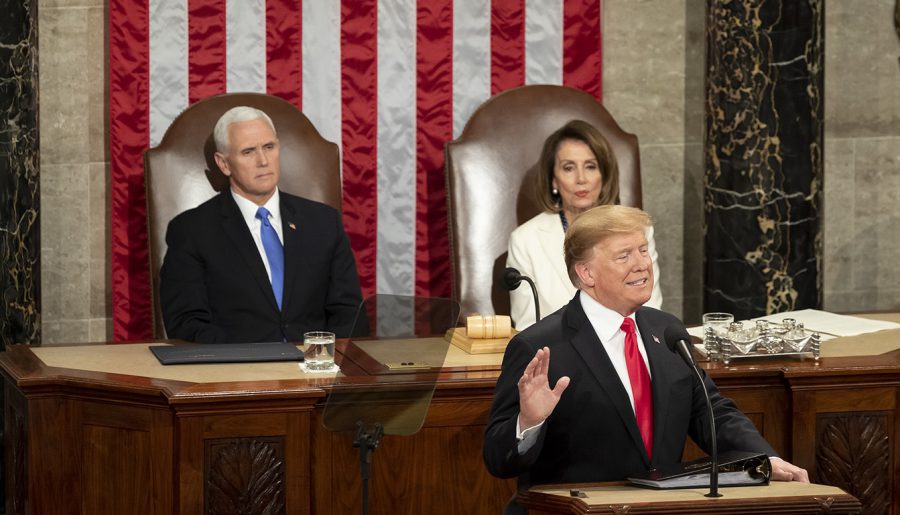ASPI suggests

The world
Devastation struck Christchurch last Friday when a right-wing terrorist attacked two mosques during prayers, killing 50 people and wounding many more. The Strategist covers all angles of the attack, including how New Zealand can learn from Australia’s gun control laws, how algorithms fail to stop the live-streaming of terror, the community response to the attack, and this touching piece by Brendan Nicholson. Writing for Vox, Vianna Goodwin shares the story of her experiences as a practising Muslim living in America, comparing them to the tragedy in New Zealand, and argues that Islamophobia is becoming normalised.
CSIS looks further into right-wing extremism, providing some possible ways to stop the spread of this form of terrorism, and the Washington Post claims that, unlike intelligence-sharing agreements between the US and its allies (including Australia) for international terrorism, no such agreement is in place for domestic terrorist organisations. And further afield, there’s been some political turmoil between the Anzac nations and Turkey following President Recep Tayyip Erdogan’s dark remarks comparing Gallipoli and the Christchurch attack. Both New Zealand and Australia have responded to those remarks.
As Yemen struggles through the world’s worst humanitarian disaster, Australia continues to sell weapons to Saudi Arabia and the UAE, whose involvement could best be described as legally ambiguous. Susan Hutchinson notes that, while Australian defence exports are important for research and development, sales must abide by the international arms control framework. Lobe Log, meanwhile, looks at Yemen’s water scarcity and how it will affect humanitarian efforts in the war-torn country.
Now that the dust from last month’s India–Pakistan cross-border skirmishes is beginning to settle, analysts are taking stock of its larger implications. This Carnegie Endowment long read provides a thorough analysis of the post-crisis situation and argues that Pakistan’s support for terror outfits remains the most destabilising influence in South Asia. Sushant Sareen wrote a scathing piece, making a case for India to assert itself after China blocked Pakistani militant Masood Azhar’s designation as a ‘global terrorist’ for the fourth time at the UN last week. This article in The Print, which looks at Indian Prime Minister Narendra Modi’s foreign policy failures, makes for a compelling read.
The Williams Foundation has released the details of new medium- to long-range stealth bombers being developed by China, raising suspicions about the Chinese state’s intent in the region. And while US President Donald Trump now says his China tariffs won’t be going anywhere soon, see this CSIS panel discussion on the rise of China, the leadership of Xi Jinping and China’s growing technological leadership [skip to 21:35 for the beginning]. And see Foreign Policy for the reasons behind Trump’s push to get NATO countries to boost military infrastructure across Europe.
Xi is in Italy after its decision to join the Belt and Road Initiative, a major cause for consternation for some. This Project Syndicate article shows exactly why. And the Guardian places the Brexit phenomenon in the larger context of Britain’s dysfunctional politics.
The Huawei debate in Europe took another turn this week as Germany announced it would go ahead with plans to allow the Chinese telecommunications giant to bid for contracts to build the nation’s 5G network, despite pressure from the US to ban it. Vox published a good backgrounder explaining the problem. This piece from Deutsche Welle describes Germany’s ‘complicated’ relationship with Huawei and talks about the European nation’s deep trading links to China.
And finally, adding a bit of festive cheer to your weekend, this South China Morning Post piece explains the significance of Holi, which millions of Indians are celebrating this week.
Tech geek
A major new story highlights the poor readiness levels of the US Navy’s F-35C and US Marine Corps’ F-35B. Based on the 2018 Director of Operational Test and Evaluation report released in January, the F-35C has only 2% operational readiness and the F-35B’s readiness is less than 15%. The problem lies with the F-35’s ‘IT backbone’, the autonomic logistics information system, which has failed to perform effectively.
The ageing US fighter fleet is prompting greater interest in developing ‘4++’ versions of the F-16 (the F-16 Block 70 and a new concept called the F-21), an F-15 replacement called the F-15EX, and a Block III F/A-18 E/F. The proposed F-15EX could also take on the role of prompt strike by carrying hypersonic standoff missiles, which are unlikely to fit inside the F-35A’s internal weapons bay.
In a blast from the past, the Pentagon is taking a page from Ronald Reagan’s ‘Star Wars’ playbook with new efforts to test a space-based neutral particle beam for missile defence by 2023.
Late last year, NATO forces conducting exercises off Norway got more than they had planned for when their access to GPS was jammed. Norway now claims it has proof that Russia was responsible for the jamming, in what’s been seen as a hostile act.
Finally, China is working on ‘magnetised plasma artillery’ that can fire shells at speeds higher than Mach 6. They could potentially be installed on tanks and have a range of up to 100 kilometres. If realised, the weapon could radically change the shape of armoured warfare.
This week in history
The Iraq War began on 20 March 2003 when, after no declaration of war, the US and its allies invaded Iraq. TRT World has a video describing the war’s legacy from the perspectives of three Iraqis who lived through it. [3:32]
Multimedia
See this photo series by Al Jazeera for a look into the drought impacting millions in the Horn of Africa.
This DW documentary investigates the humanitarian crisis in Venezuela and the events that caused it. [28:24]
Podcasts
Pod Save the World starts by talking about the Christchurch attack before moving onto online radicalisation and Huawei. [50:06]
Former CIA director David Petraeus speaks with former acting CIA director Michael Morell in Intelligence Matters about strategic leadership and the biggest issues in US foreign policy. [41:24]
This week on Hard Talk, the World Bank’s interim president, Kristalina Georgieva, confronts the criticism surrounding the bank’s roles, values and methods. [23:59]
Events
Brisbane, 26 March, 6–7.30 pm, AIIA: ‘Brexit: deal or no deal—facts, fallout and future’. Register here. ($15)
Canberra, 27 March, 6–7 pm, ANU: ‘US foreign policy in the 2020 presidential race, and where to after Trump?’ More information here.
Melbourne, 28 March, 5.30–6.30 pm, University of Melbourne: ‘Why the ‘Indo-Pacific’?’ Register here.









